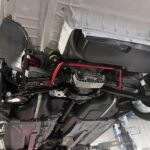The PCH customer, raised a couple of queries regarding the lease arrangements, in particular about “purchasing” of a lease car. As contract hire grows, so do the questions about the product.
So, can you buy a contract hire vehicle? Can you sell a contract hire vehicle?

The first, and most important, distinction to make is that between a personal contract hire and personal contract purchase agreement. A contract hire agreement is a “usership” one; this fundamentally means that it is not based around the customer purchasing the vehicle. The idea of contract hire is that the customer enters into a long-term contract to use the vehicle (generally 2,3 or 4 years). At the end of the contract, the vehicle will be collected by a representative of the finance company (usually BCA or Manheim) and they will take it to an auction to be sold. That being said, there are a limited number of finance companies who do offer some flexibility to customers at the end of the contract and they will be able to purchase the vehicles. This is known as a Driver to Buy/Driver Sale.
In most cases, a customer should receive some communication about their contract end date 3-6 months before the actual cessation. At this point, you need to consider what options you wish to pursue; hand the car back/extend the contract for 6 or 12 months/request a purchase figure. If you do choose the latter, what can you expect to pay for your lease vehicle? This is where most of the confusion comes in, as customers start to mix the contract hire and contract purchase approach to end of contract. With contract hire, should you wish to purchase the vehicle, the finance company will provide you with a realistic market value. This amount does NOT take into account monthly rentals you have already paid out on the vehicle. Some customers therefore believe the amount to be quite expensive.
In contrast, a PCP arrangement is more of an ownership-style product and does take into account the prospect of a customer purchasing the vehicle. Unlike contract hire, with a PCP contract you will be provided with a Guarantee Future Value (also known as final payment/final balloon/balloon) at the outset. This specifically tells a customer what they need to pay in order to own the vehicle outright. Contract hire does not offer this facility. The price you will be offered depends on the auction prices at that time. If you have a vehicle which is particularly popular as a used-car, you may need to pay a premium in order to own it. So why buy a lease car? Most customers know their vehicle inside out from new – surely it is better to have a known quantity?
So can you sell the lease car onto a third party? As highlighted above, contract hire is a fixed term contract and is financed by one customer. At the end of the contract, you have to consider to what extent a third party would want to pay a premium for your lease vehicle. Additionally, if you wish to sell the lease vehicle before the contract end date, you would need to pay an early termination payment to exit the contract (often an amount equivalent to half of the remaining rentals). Again, customers confuse PCP and PCH, as they think that once you have paid a certain amount of money you can simply return the vehicle at no cost. This is a right afforded to customers under a PCP arrangement and is known as “Voluntary Termination”. Essentially, when you have paid half of the total amount payable (including initial payment/monthly payment/GFV) you can exercise your right to terminate the agreement. This is not possible with contract hire.
The conclusion on this is that if you are looking to enter into a purchase-style agreement, you need to consider finance options like PCP. Contract hire is not suitable for those who wish to take advantage of those facets. However, as a minority of customers actually buy/sell cars, you have to consider how valuable this flexibility actually is?










